Scroll through the page to learn more about our past projects as for example water projects, trainings or biochar.
Updated information on the development, progress or completion of projects can be found in the annual reports of the Board of Directors and the Project Review Committee – see “Association”. Regular reports on projects are also provided in the newsletter – see “Newsletter”.
Mill Project
2020 – The mill project was successfully completed
For the final report click here.
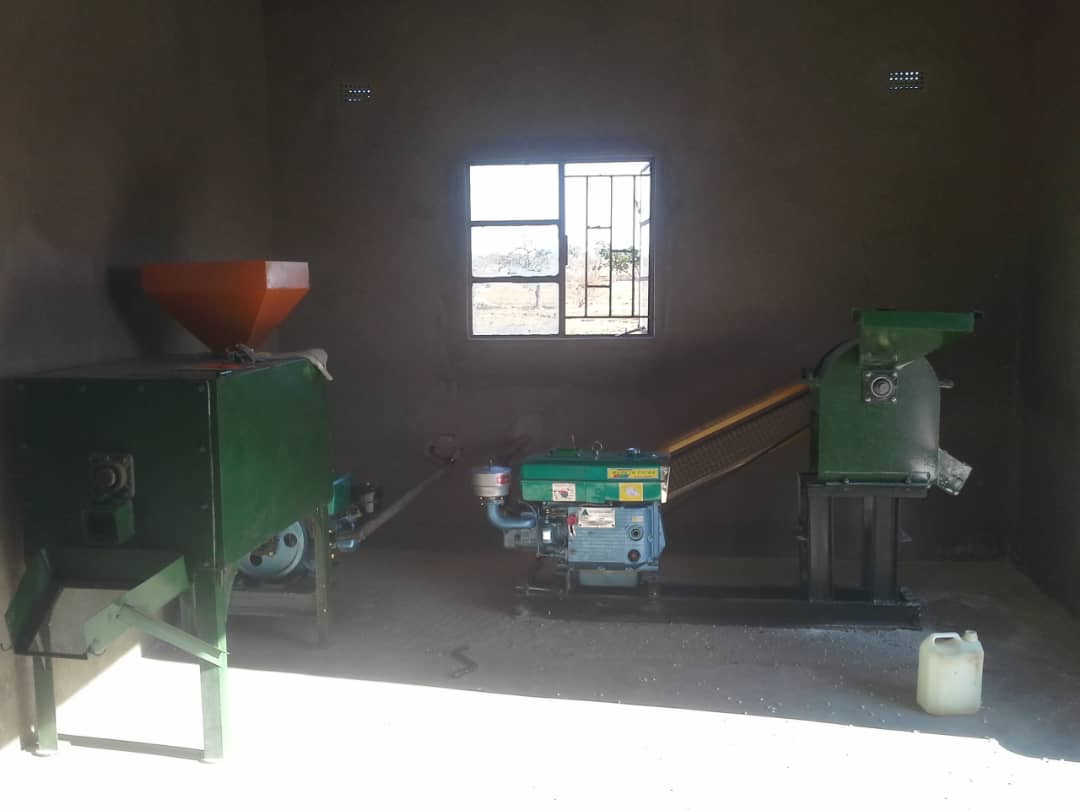
Water
2020 – The water project was successfully completed
For the final report click here.
2018 – Emptying the water reservoir and renovation of the dam
Generations ago, there was already a dam with a small reservoir. Since the area lay fallow for a long time and dried up more and more, termites nested and destroyed the dam. However, water is indispensable, so all possible means are used to hold back the water. The renovation of the dam is fundamental to this.
2017 – Renovation of the dam
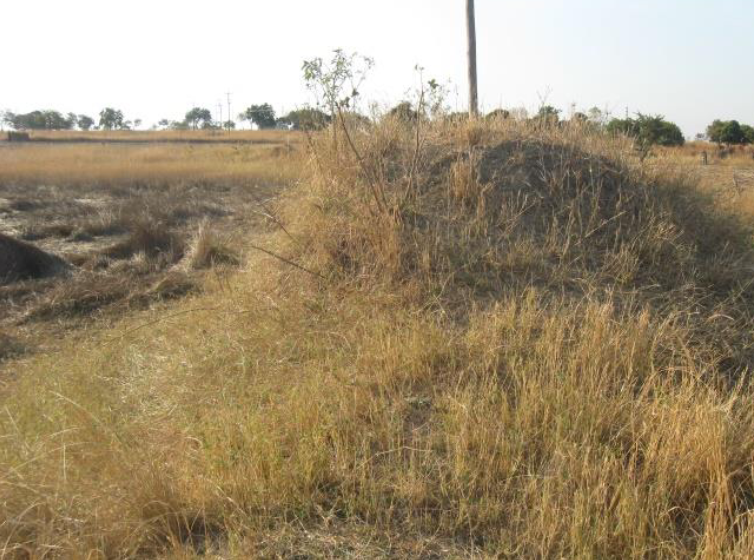
2016 – Drip irrigation
This water-saving irrigation is ideal for the very dry environment of the ecovillage, in which the only rainy season is very short (November to February). Thanks to a solar system, the water will be pumped from the wells to the facility. To do this, the well must first be deepened.
Construction of Eco-Buildings
2019 – Construction of Eco-Buildings
After several years of concentration on the basic needs (especially water, improvement of the soil), the demonstration farm now intends to start the construction of several buildings (in 2019, first of all, a common room). The material needed for this will be produced as far as possible or consists of recycled material (grass for the roofs, sun-dried bricks, PET bottles).
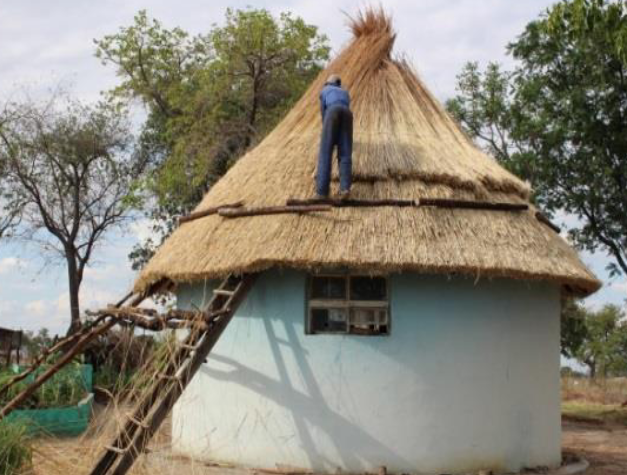
2018 – Construction of Eco-Buildings
After several years of concentration on the basic needs (especially water, improvement of the soil), the demonstration farm now intends to start the construction of several buildings (in 2019, first of all, a common room). The material needed for this will be produced as far as possible or consists of recycled material (grass for the roofs, sun-dried bricks, PET bottles).
2016 – Ecological traditional clay building blocks
In Zimbabwe, too, bricks have become established for building houses. Since their production requires an enormous amount of firewood, the ecovillage is switching to the traditional clay bricks. In time, this will mean a source of income.
Permaculture
2017 – Reforestation
The surroundings of the ecovillage are barren and deforested, because the population needs the wood mainly for cooking. Reforestation helps not only to shade and green but also to raise the groundwater level. In 2016, a tree nursery was established with hundreds of seedlings. Now it is a matter of planting them and protecting them from animals (especially goats) as well as teaching the population how to care for and raise them.
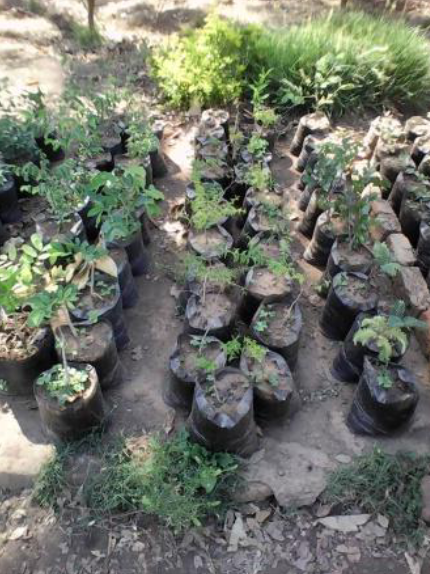
2014 – Development of the idea of an ecovillage
BioChar
2019 – Production and use of BioChar
In 2018, experiments were conducted with the production of our own biochar (BioChar). In 2019, soil samples will be collected from neighbors to know their soil quality and continue the experiment there as well. Depending on the soil sourcing, the mixture of biochar, soil, and organic material will have to be composed differently. The effect on the crop yields of the soils should thus be increased and the natural fertilizers produced by the village diversified.
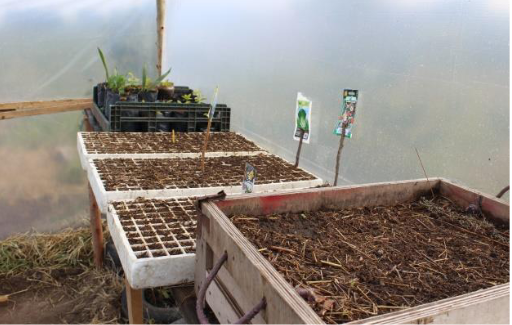
2018 – Production and use of BioChar
The production of our own biochar (BioChar) will be experimented with in 2018. Good soil is to be created, consisting essentially of charcoal powder composted together with organic waste (food scraps, leaves, feces, etc.). The added alkaline charcoal powder also serves as a massive water and fertilizer reservoir. It is hoped that this will increase the effect on the crop yields of the land and diversify the natural fertilizers produced by the village. For this purpose, Fr. 15,000 was donated by an organization that promotes this method.
Education / Workshops
2019 – Use of Medicinal Plants
Catherine Mubaya attended a medicinal herb seminar in Cameroon in 2017. Since then, she has been running a herb garden, including lemongrass (see photo), which can be ordered as tea. In 2019, a workshop is planned at the ecovillage so that more people can gain knowledge about the use of medicinal herbs. Furthermore, Catherine is to be trained even further.
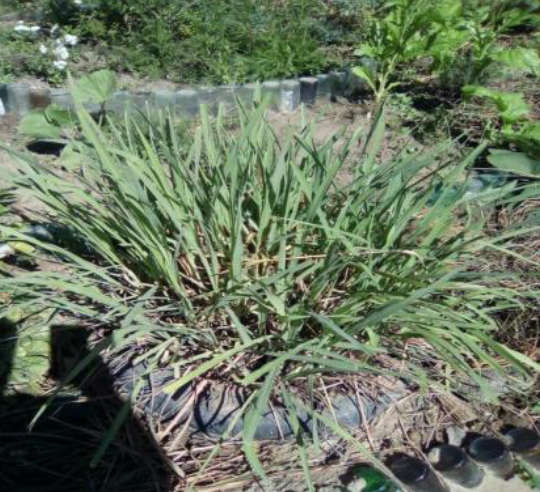
2017 – Training in health, nutrition and permaculture
Civilization diseases are also on the rise in Zimbabwe, not least because of an unbalanced diet and fast food shops. Healthy living is only possible in harmony with nature. A healthy plant can only come from healthy soil. Healthy meat, in turn, can only come from healthy animals. The goal is now to bring the village community closer to the connections between agriculture and animal husbandry, as well as nutrition and health, and to show how a balance can be found again thanks to permaculture.
2016 – Workshop for food processing and preservation
To prevent ripe fruits and vegetables from rotting, the community learns various preservation methods (juicing, drying, sauces, jams, etc.).
2015 – Basic training of the coordinators
Training of coordinators in permaculture at the Fambidzanai farm near Harare.
2014 – Evaluation of the Pilot Project “Sun for Food”
Review of the results of the 2013 workshop.
2013 – Sun for Food
August 19 to September 6, 2013: Pilot project “Sun for food” workshop: learning how to make solar ovens and solar dryers as well as clay ovens and how to use them under the competent guidance of an experienced teacher from Togo.
Other
2016 – Fence construction
To defend against thieves and keep animals from trampling the gardens, a fence is very important. Also, this allows to keep their own cattle in the village.